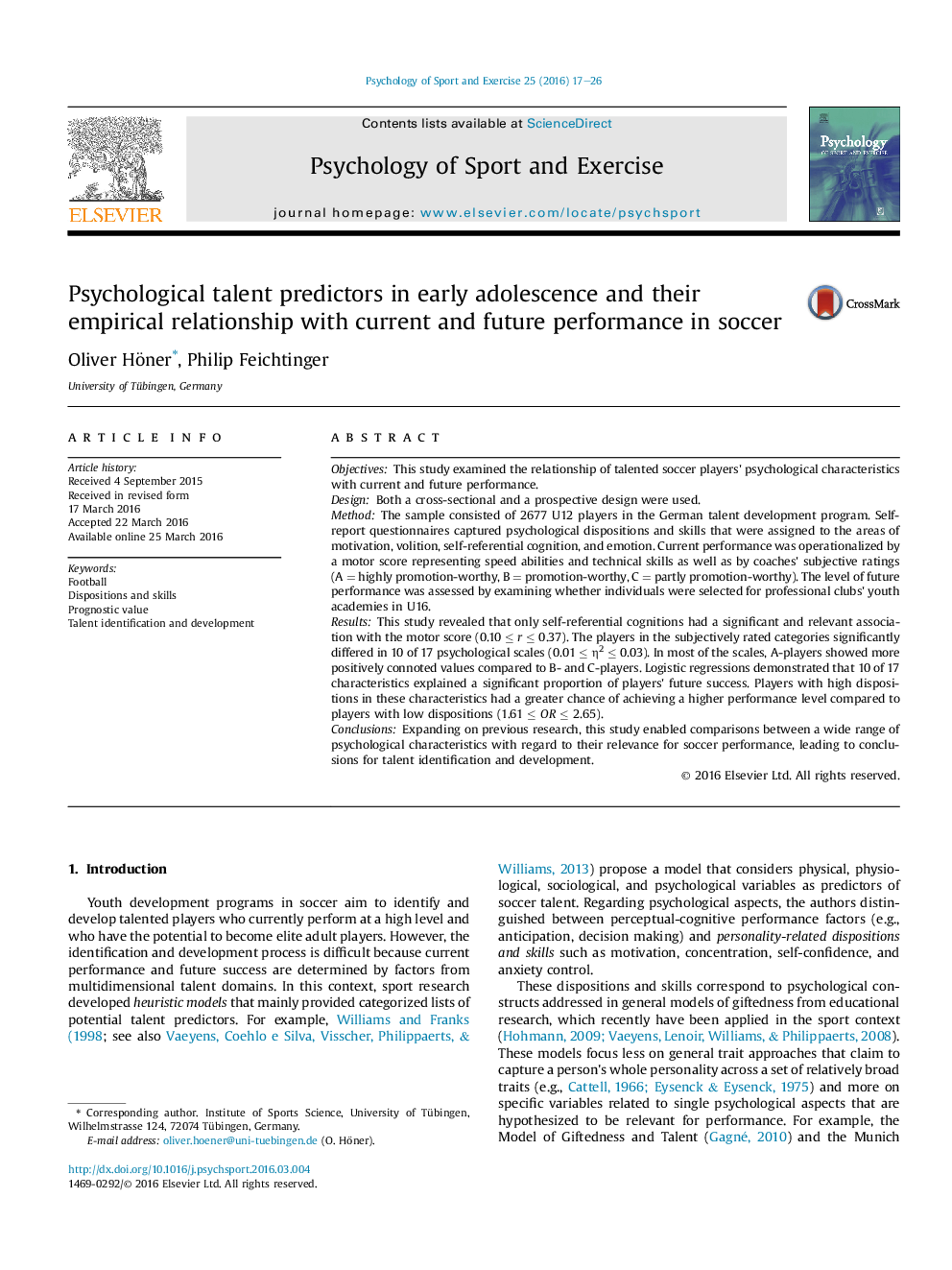| Article ID | Journal | Published Year | Pages | File Type |
|---|---|---|---|---|
| 894224 | Psychology of Sport and Exercise | 2016 | 10 Pages |
•A 4-year-prospective study was conducted with 2677 highly talented U12 players.•Self-referential cognitions were correlated with U12 players' motor skills.•Various characteristics demonstrated relationships with subjective ratings in U12.•Motivation, volition and self-referential cognition revealed prognostic relevance.
ObjectivesThis study examined the relationship of talented soccer players' psychological characteristics with current and future performance.DesignBoth a cross-sectional and a prospective design were used.MethodThe sample consisted of 2677 U12 players in the German talent development program. Self-report questionnaires captured psychological dispositions and skills that were assigned to the areas of motivation, volition, self-referential cognition, and emotion. Current performance was operationalized by a motor score representing speed abilities and technical skills as well as by coaches' subjective ratings (A = highly promotion-worthy, B = promotion-worthy, C = partly promotion-worthy). The level of future performance was assessed by examining whether individuals were selected for professional clubs' youth academies in U16.ResultsThis study revealed that only self-referential cognitions had a significant and relevant association with the motor score (0.10 ≤ r ≤ 0.37). The players in the subjectively rated categories significantly differed in 10 of 17 psychological scales (0.01 ≤ η2 ≤ 0.03). In most of the scales, A-players showed more positively connoted values compared to B- and C-players. Logistic regressions demonstrated that 10 of 17 characteristics explained a significant proportion of players' future success. Players with high dispositions in these characteristics had a greater chance of achieving a higher performance level compared to players with low dispositions (1.61 ≤ OR ≤ 2.65).ConclusionsExpanding on previous research, this study enabled comparisons between a wide range of psychological characteristics with regard to their relevance for soccer performance, leading to conclusions for talent identification and development.
